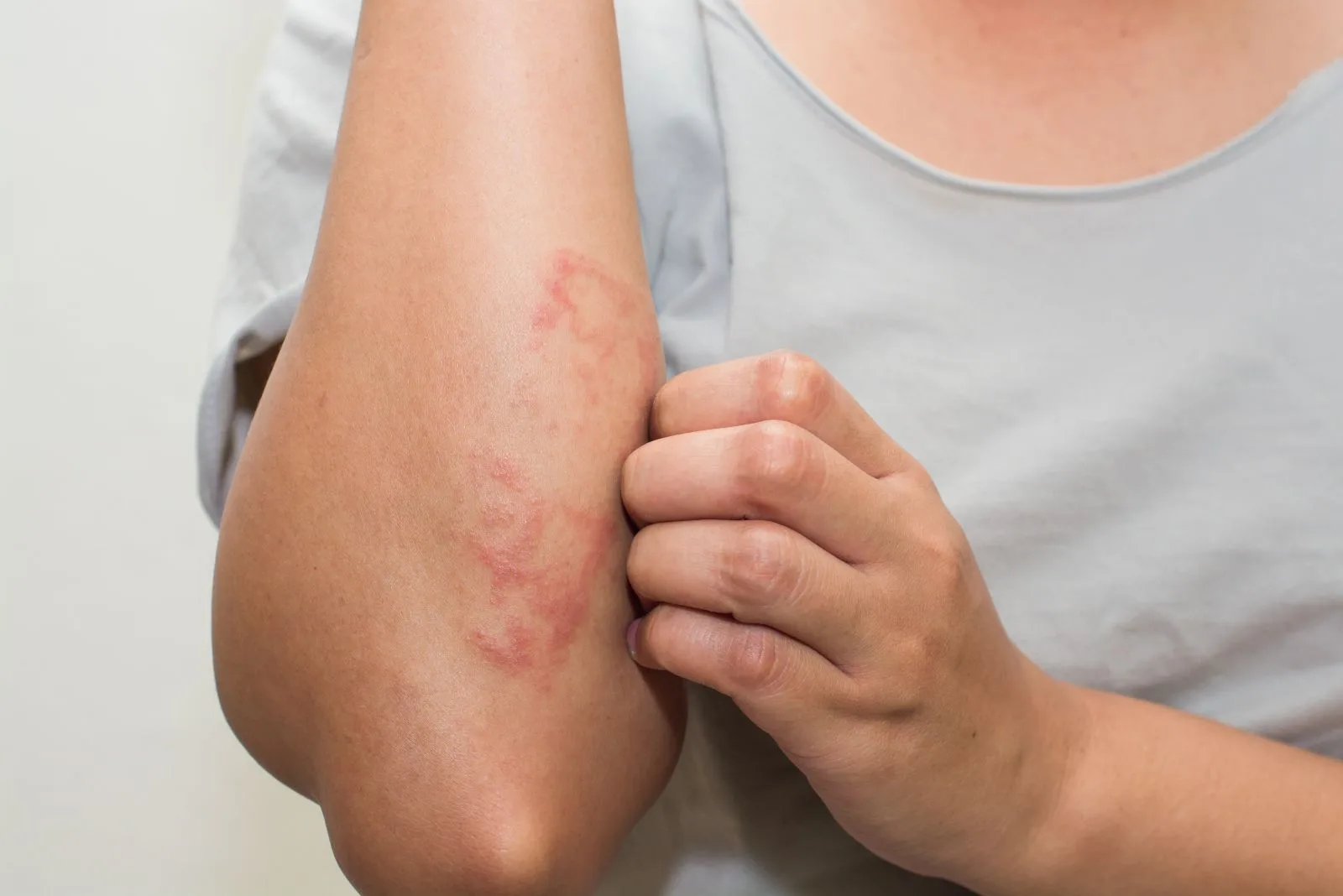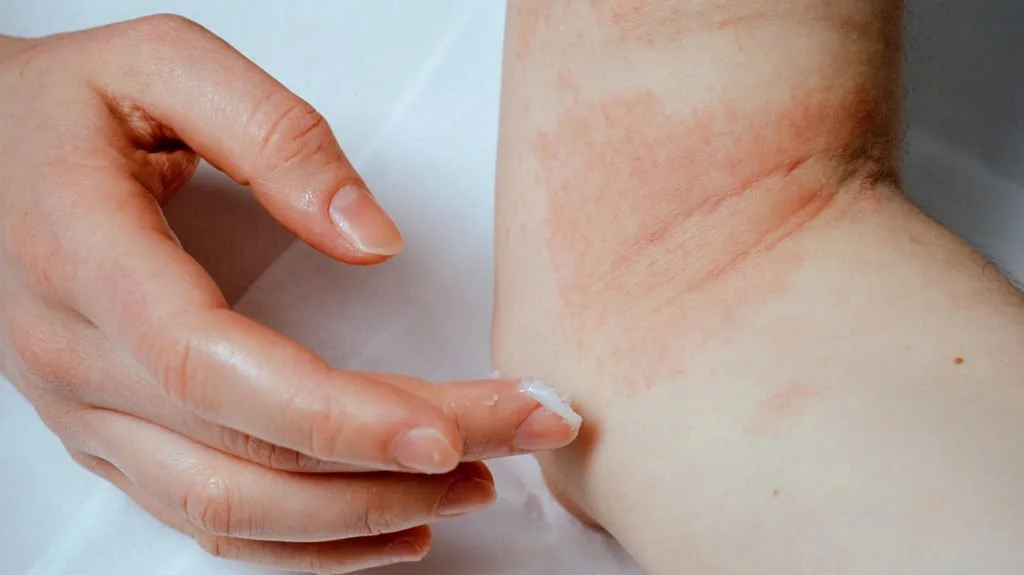Are you suffering from itchy, inflamed skin and scratching for answers? If so, we have good news for you. The 14 – 18 September is National Eczema Week. This week is dedicated to improving awareness and understanding of atopic eczema as well as showing respect to those living with the illness as well as their family members.
“Atopic eczema is incredibly difficult on patients and their families, seriously impacting their daily lives as well as ultimately affecting the quality of life,” says Dr. Alicia McMaster, Head of Medical for Speciality Care at Sanofi. “An individual’s overall health and wellbeing can be severely impaired by the disease. Patients and families are at the core of this year’s World Atopic Eczema Day. Working together with the Allergy Foundation South Africa, on September 14th we will come together to unite for action and recognition of the importance of this disease. Together, we #CareForAtopicEczema. It connects everyone who shares the consequences of the illness and encourages them to talk about their experiences.”
What is atopic eczema?

Atopic eczema is also known as Atopic Dermatitis (AD). Atopic Eczema, which is one of the forms of eczema, is a chronic, inflammatory skin disease characterised by unpredictable flare-ups driven in part by a malfunction in the immune system (1).
Despite common misconceptions that AD is “just” a skin condition, it is a systemic inflammatory disease that can have a significant physical as well as psychological impact on people with AD, many of whom are unable to adequately achieve control of their condition.
Moderate-to-severe AD is associated with inflamed skin and intense itching that can occur all over the body. Common areas affected include the knees, elbows, ankles, face, neck, feet, hands, and wrists. Unpredictable flare-ups, or exacerbations, can include red rashes, skin dryness, cracking, as well as crusting and oozing.
Some people with moderate-to-severe AD continue to experience debilitating symptoms despite available topical and steroid treatment options. Moderate-to-severe AD can take control of people’s lives, causing sleep disturbance, symptoms of anxiety, and depression, as well as feelings of isolation (2)(3). Many people feel that their AD negatively impacts all aspects of their lives and influences important life decisions – socially and professionally (4).
Dermatologist Dr. Suretha Kannenberg, says that while it is difficult to determine the prevalence of eczema in South Africa, the disease mostly affects children. “Around half of childhood sufferers will potentially outgrow the condition by the time they reach puberty. Of these, more than half will develop flare-ups as adults. It is important to keep in mind that, although less common than in childhood, adults can develop eczema at any age.”
Excessive type 2 inflammation is part of the underlying mechanism for the development of AD, asthma, chronic rhinosinusitis with nasal polyps, eosinophilic esophagitis, and certain allergies.
How does one manage eczema?
Never underestimate the importance of gentle skincare and the application of copious amounts of the correct moisturisers especially in the management of milder cases of atopic eczema. In cases of more severe eczema, dermatologists may recommend topical corticosteroids, which have rapid, anti-inflammatory and anti-itch effects. This calms the flare-ups and helps break the itch-scratch cycle. There are also non-steroidal topicals. They are generally less effective during a flare, can cause transient burning or stinging, but is highly effective as maintenance treatment.
Biologic therapy is the most recent option for adults and teens with moderate to severe eczema who don’t improve enough with topical steroids or who cannot use them. Biologics are targeted, genetically engineered treatments made from living tissue or cells.

The bottom line
Living with eczema doesn’t have to be a burden. If you follow a proper treatment regime you can live a normal, better quality of life! If you or someone you know has been diagnosed with eczema, speak to your doctor or healthcare provider about suitable treatment options.
JOIN US FOR A FACEBOOK WEBINAR
For those who suffer from atopic eczema or atopic dermatitis(AD), or those caring for someone that suffers from it, join the Allergy Foundation South Africa on Thursday, 17 September from 12:30 pm (SAST) to 1.30 pm (SAST) for an educational Facebook Livestream event where Dr. Kannenberg will be sharing more insights on atopic eczema as well as practical advice/tips for how to live a better life with it. Dr. Alicia McMaster will also share insights on the developments and treatments for atopic dermatitis. There will be Q&A opportunities and viewers will be able to hear some positive, uplifting stories from other patients suffering from the condition. To join, click here and look out for the soon-to-be-launched online Facebook Atopic Eczema Support Group.
References
Simpson, E. L., Bieber, T., Eckert, L., Wu, R., Ardeleanu, M., Graham, N. M., Pirozzi, G., & Mastey, V. (2016). Patient burden of moderate to severe atopic dermatitis (AD): Insights from a phase 2b clinical trial of dupilumab in adults. Journal of the American Academy of Dermatology, 74(3), 491–498. https://doi.org/10.1016/j.jaad.2015.10.043
Simpson, E. L., Bieber, T., Guttman-Yassky, E., Beck, L. A., Blauvelt, A., Cork, M. J., Silverberg, J. I., Deleuran, M., Kataoka, Y., Lacour, J. P., Kingo, K., Worm, M., Poulin, Y., Wollenberg, A., Soo, Y., Graham, N. M., Pirozzi, G., Akinlade, B., Staudinger, H., Mastey, V., … SOLO 1 and SOLO 2 Investigators (2016). Two Phase 3 Trials of Dupilumab versus Placebo in Atopic Dermatitis. The New England journal of medicine, 375(24), 2335–2348. https://doi.org/10.1056/NEJMoa1610020
Torrelo, A., Ortiz, J., Alomar, A., Ros, S., Prieto, M., & Cuervo, J. (2012). Atopic dermatitis: impact on quality of life and patients’ attitudes toward its management. European journal of dermatology : EJD, 22(1), 97–105. https://doi.org/10.1684/ejd.2011.1560





![women [longevity live]](https://longevitylive.com/wp-content/uploads/2020/01/photo-of-women-walking-down-the-street-1116984-100x100.jpg)










One Comment